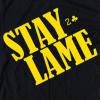Philosophy
-
hello 2025!
supertalk is free to browse as a guest. You need to be a member to participate in discussions or buy and sell on the classifieds.
Classifieds listings are now free for members.
supertalk is now upgraded to //// supertalk 8 ////
______________________________________
Current new membership is $US 12 ONE TIME FEE. NO RENEWAL FEE.
______________________________________
You can also become a premium superseller or supermember. Businesses who want to promote their brand and products need to become a supersponsor. superfuture® is privately owned and has been online continuously for 26 years. supertalk has been online for 21 years and is a digital cockroach that will survive all current and future apocalypses.
-
Top 10 Active Viewed Topics
-
- 24430 replies
- 6928185 views
-
- 26784 replies
- 6443907 views
-
- 24769 replies
- 4772904 views
-
- 23107 replies
- 3895035 views
-
- 14064 replies
- 3740923 views
-
- 10651 replies
- 3299148 views
-
- 21292 replies
- 3128959 views
-
- 13320 replies
- 2965872 views
-
- 11647 replies
- 2722826 views
-
- 8534 replies
- 2641262 views
-











Recommended Posts
Join the conversation
You can post now and register later. If you have an account, sign in now to post with your account.